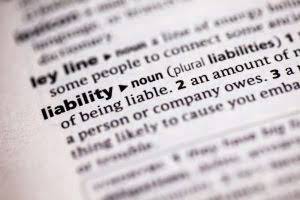
An outstanding check is when the payee neglects to cash or deposit a check (or the check gets lost). This means the check does not clear and does not show on a month-end bank statement. Outstanding checks are a liability for the payee, but once deposited, they are reconciled against the recipient’s account. Outstanding checks are checks that have been issued but not yet presented for payment or cleared by the bank.
Pros and Cons of High-Yield Checking Accounts
Outstanding checks may sit unspent for a long time, but it’s possible to avoid overdraft fees and insufficient funds charges that stem from essentially spending the same money twice. We answer your questions about this financial term and what to do when managing an outstanding check. Learn about outstanding checks in finance, including the definition, risks involved, and effective ways to avoid them.
Financial Literacy Matters: Here’s How to Boost Yours
If you cannot find the issuer, consult your state’s abandoned property program to claim assets. Fortunately, banks don’t have a legal obligation to honor checks written more than six months in the past. If the old check isn’t six months old, or if you want an extra layer of protection, two strategies can protect you. It may be necessary to issue a new check without getting the old check back if the original check was lost or destroyed. This presents a thorny situation—two checks might be circulating for a single payment. If the old check is deposited, your bank might honor it, and you could consequently end up paying double.
Outstanding Check: Definition, Risks, And Ways To Avoid
Outstanding checks are an important component of your financial records, as they directly impact your account balance. Failure to properly manage outstanding checks can result in overdrafts, inaccurate financial reporting, and potential fees or penalties. Overall, the consequences of not managing outstanding checks can be detrimental to the financial well-being of a business. Overall, understanding the concept of outstanding https://www.bookstime.com/ checks is crucial for accurate financial reporting and cash management. By keeping a close eye on outstanding checks and reconciling them regularly, companies can ensure the integrity of their financial records and effectively track their cash flow. A bank reconciliation is an essential process for ensuring that your company’s financial statements match the available cash in your business bank account.
Potential for Overdrafts and Insufficient Funds
They represent pending transactions where the funds have not yet been deducted from the issuer’s account. These checks can pose risks such as overdrawing the account, potential fraud, accounting discrepancies, and delayed financial reporting. The payor must be sure to keep enough money in the account to cover the amount of the outstanding check until it is cashed, which could take weeks or sometimes even months. Bank reconciliation isn’t just important for maintaining accurate business finances—it also ensures your customer and business relationships remain strong. Regular bank reconciliation double-checks that all payments have been accurately processed.
Regular bank reconciliation saves you from having to review a full year of financial records—instead, you can quickly consult your reconciliation statements to review any required information. By comparing the two statements, Greg sees that there are $11,500 in checks for four orders of lawnmowers purchased near the end of the month. These checks are in transit, so they haven’t yet been deposited into the company’s bank account. He also finds $500 of bank service fees that hadn’t been included in his financial statement. Bank charges are service charges and fees deducted for the bank’s processing of the business’s checking account activity. This can include monthly charges or charges from overdrawing your account.
- By comparing your company’s internal accounting records to your bank statement balance, you can confirm that your records are accurate and analyze the reasons behind any potential discrepancies.
- He also subtracts the $500 in bank fees from his financial statement balance, bringing him to $99,500 and balancing the two accounts.
- If you wait too long, the check can go stale, and no longer be considered valid.
- Failure to properly manage outstanding checks can result in overdrafts, inaccurate financial reporting, and potential fees or penalties.
- Exceptions include several types of government-issued checks, like tax refunds and U.S.
Individuals can reduce surprise withdrawals in personal accounts by using online bill payment instead of issuing paper checks. You can also call or write what are outstanding checks in accounting to remind the payee that the check is outstanding. If they haven’t received the payment, this may nudge them to notify you to reissue the check.
- The payor gives it to the payee and notes the amount of that check as a “pending” payment until the check fully clears and the account balance is adjusted by the bank to account for the payment.
- These checks represent an ongoing financial obligation for the company until they are cashed or deposited.
- First, let’s start with a clear explanation of what outstanding checks actually are.
- Overall, understanding the concept of outstanding checks is crucial for accurate financial reporting and cash management.
- Holding on to checks for a long time also increases the likelihood that they will get lost or destroyed before they are cashed or deposited.
- Keeping on top of your bank reconciliation ensures that you’re always aware of your company’s financial situation.

This documentation will come in handy if you need to prove to state regulators that you made reasonable attempts to complete the payment. If an outstanding check is cashed after you asked a bank to stop the payment, you will be responsible for proving that you took the necessary steps to complete the payment. Once such checks are finally deposited, they can cause accounting problems. Furthermore, checks that are never cashed may constitute “unclaimed property” that is turned over to the state. It is worth noting that outstanding checks are different from voided checks. Voided checks are checks that have been rendered invalid and are no longer considered part of the company’s outstanding obligations.

✝ To check the rates and terms you may qualify for, SoFi conducts a soft credit pull that will not affect your credit score. • Reach out to the payee and ask what happened to the outstanding check. Before sending one, ask the payee to return the old check to eliminate the possibility of both checks being deposited, either intentionally or unintentionally. Check to see that the contact information is correct, as checks may go missing simply because of an incorrect mailing address. Errors in the cash account result in an incorrect amount being entered or an amount being omitted from the records. The correction of the error will increase or decrease the cash account in the books.

